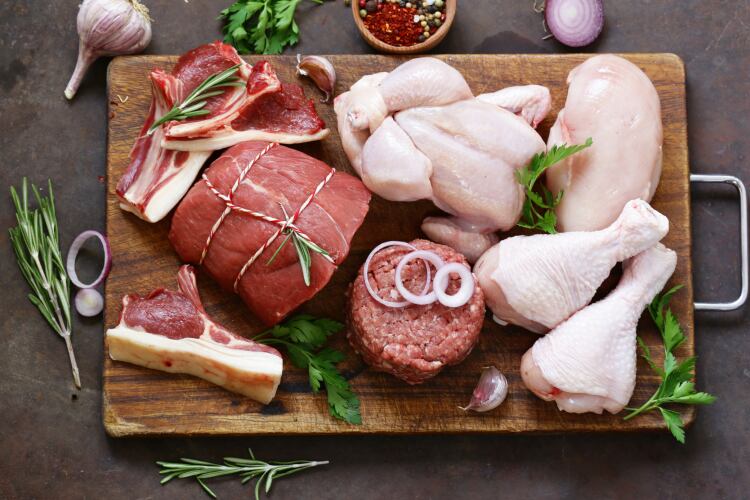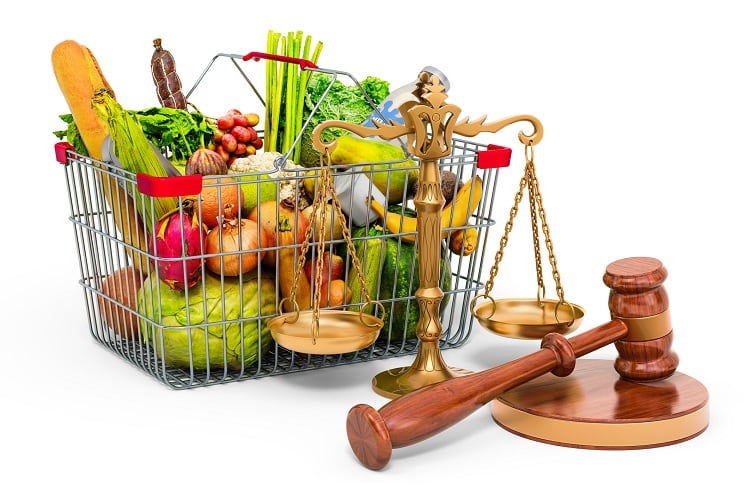In a new report, the British Meat Processors Association estimates that Brexit is costing the sector between £90m and £120m annually in additional export costs as it grapples with ‘mountains of red tape’. Moreover, UK meat companies are also facing a ‘permanent’ loss of trade of between 20% and 50%.
“Temporary teething problems have resulted from a mixture of simple mistakes made on both sides and differences in interpretation of the new rules,” the industry association noted. The BMPA says that these issues should ‘in theory’ lessen as people become more acquainted with the new requirements and UK-EU guidance becomes more closely aligned.
But this will offer little comfort to manufacturers who are grappling with deep-seated issues in the new regime that time – and work to align guidance - will not heal alone. “The systemic problems pose a bigger challenge, and some are simply not fixable like the 60-100% increase in certification costs for each export consignment.”
Listing off the additional costs, BMPA flagged customs declarations, customs agents, freight forwarders and additional veterinary inspections. This is rendering some exports ‘un-viable’. And the headline figure doesn’t even take into account ‘hidden costs’ including higher insurance, more administrative staff and higher haulage charges.
“The export hurdles we face are now in plain sight and are not going away,” BMPA CEO Nick Allen stressed.
Members of the industry body are reporting EU customers cancelling orders due to delays, uncertainty and increased costs. During the first six weeks of 2021, export volumes were running at 50% of pre-transition levels.
‘Urgently re-engage’, industry pleads
The current situation will result in the decimation of profitable meat exports to the EU. The sector has previously warned that meat jobs in the UK are likely to be hit.
The system, BMPA argued, has not been built to cope with the just-in-time, next day delivery needed in the food chain.
So what does the BMPA want the UK Government to do? Allen believes the solution is a ‘new system’ that is ‘fit for purpose’. The BMPA wants its report to form the basis of a ‘comprehensive discussion’ and ‘ultimate overhaul’ of the current export certification system.
“British companies who are dealing with the new issues on the ground are best placed to offer constructive solutions; but these solutions need support and investment from Government to build a new system that is fit for purpose,” he explained.
This would require the Government to consult with both companies on-the-ground and EU rule makers.
“We need Government to urgently re-engage with both the industry and the EU to work out detailed and lasting solutions. The British Meat Processors Association and its members stand ready to consult with Government and map out those solutions.”
FoodNavitator did not receive a response to questions around whether the Government is willing to engage in further consultation with the food industry or re-open any discussions around terms of trade when we contacted the Cabinet Office, which is taking the lead on EU-UK trade issues.
A spokesperson for the BMPA told FoodNavigator that there appears to be an awareness of the difficulties within Government but added that for solutions to be developed the UK will need to work cooperatively with the EU. "In fairness, the Government has got workstreams that will at some stage in the future address some of these issues, but they will take time to come into play. So there is a recognition that this is not a very good system but, to solve the issue properly, it needs a sensible dialogue with the EU, which in the current climate is not happening."
The BMPA has proposed a three-point plan to alleviate some of the structural challenges facing food exporters.
- The establishment of a Switzerland style agreement with the EU on a common Veterinary area
- The development of an integrated, end-to-end electronic tracing and certification system
- Setting up a government led veterinarian and auxiliary inspection and certification system
BMPA conclusions 'uncomfortable reading'
Reflecting on the BMPA report Mark Lynch, a Partner at M&A advisory Oghma Partners, said that the conclusions 'make uncomfortable reading' for those arguing that the current issues are ‘teething problems’. "They once again highlight the cash cost of leaving the EU single market and customs union," he stressed.
The meat sector is not alone in experiencing export disruption, with a 63.6% total decline in food exports during January. Oghma Partners estimate that full year food and drink exports to the EU will fall between £2-4bn.
"In essence the problems boil down to the need to provide additional documentation that was not needed prior to the UK leaving the EU. Certification is costly and as importantly time consuming," Lynch noted. "Oghma Partners has seen first hand that businesses are voting with their feet and moving operation from the UK to the EU single market which is a loss of jobs and tax revenue for the UK."
In a scathing critique of how the UK government has managed the country's exit from the European Union, Lynch argued: "The Government has had four years to prepare for leaving the EU and has failed, despite industry warnings, to do so adequately. It seems it would be better to accept that these problems exist and to seek to rectify them through investing some of the suggested £350m saved per week from leaving the EU in the UK food industry than accept a de facto permanent loss in business."




